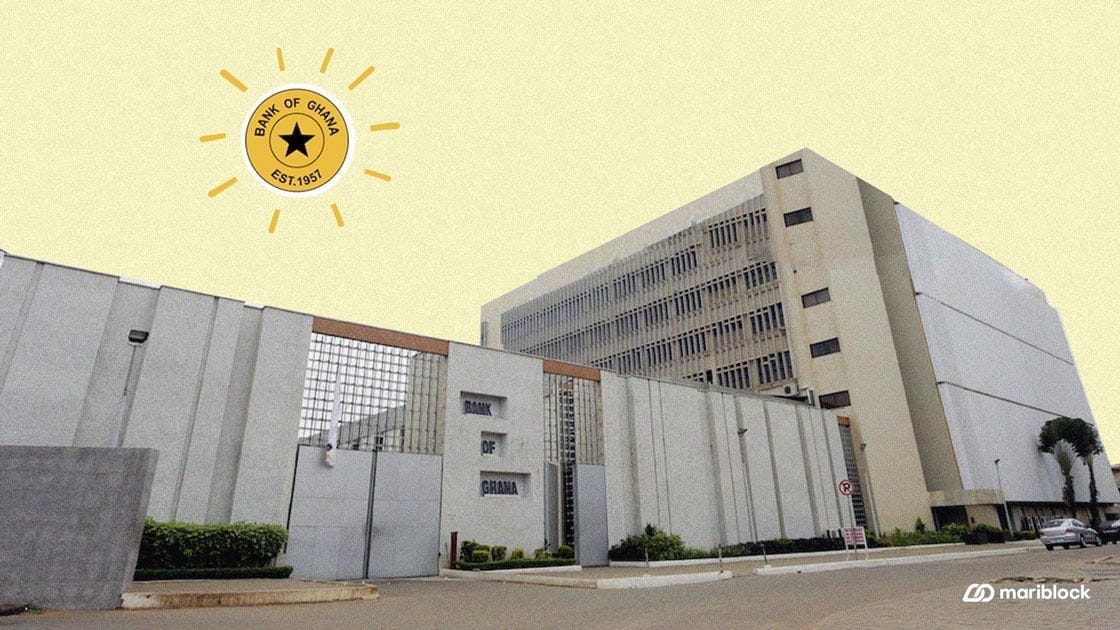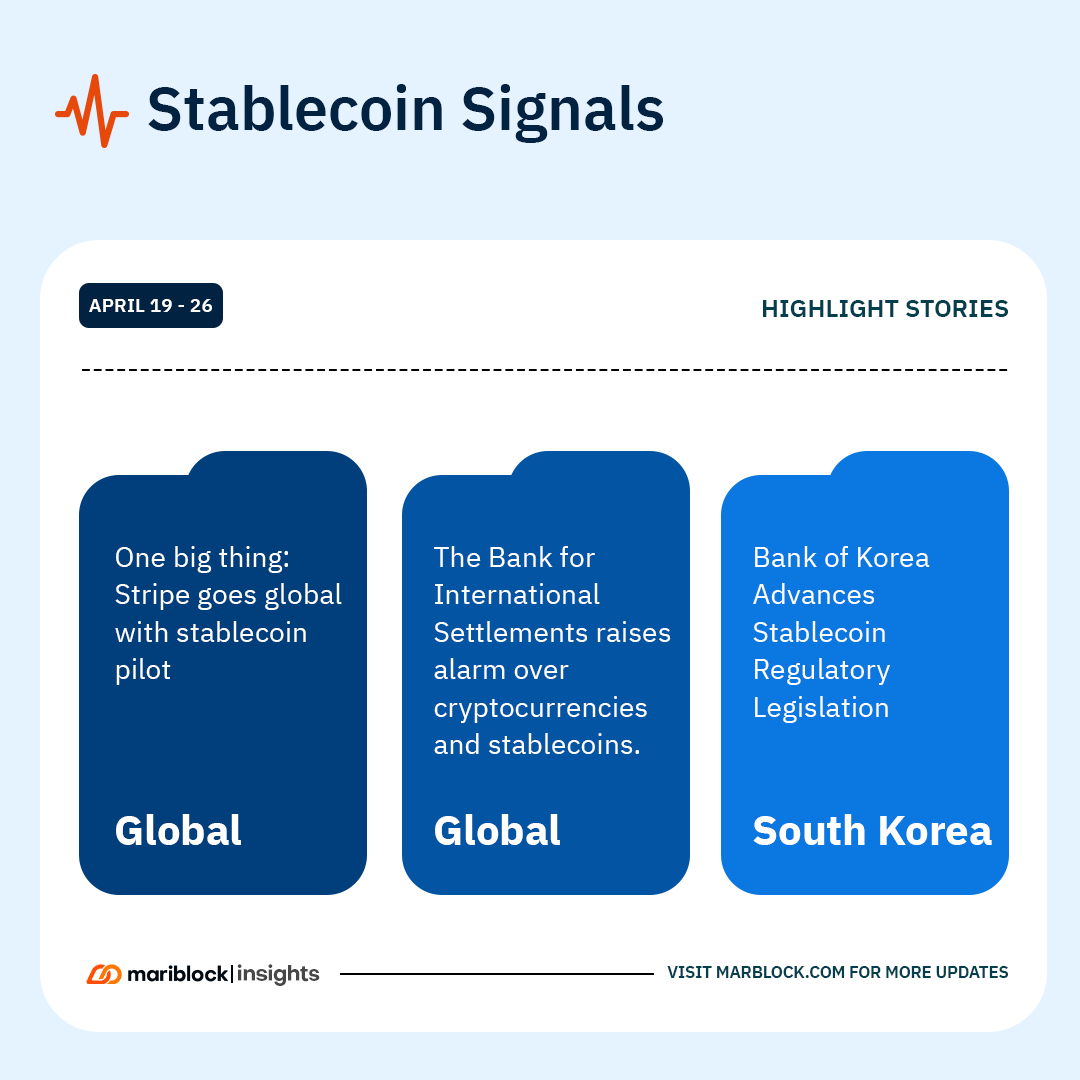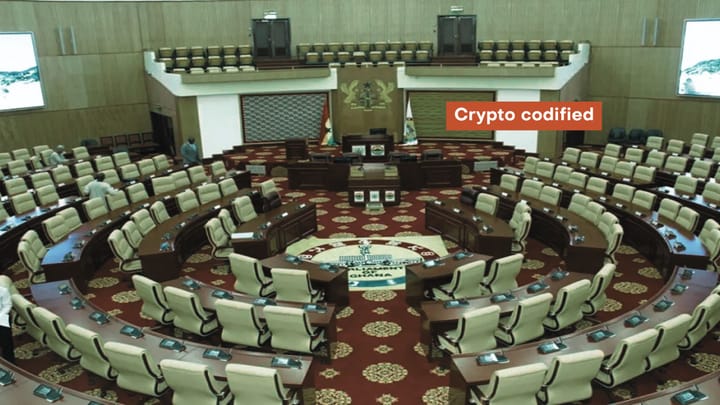🟠 Circle teams up with Flutterwave, Yellow Card to power stablecoin payments
Plus: 🇬🇭 Bank of Ghana plans crypto regulations by September; 🇿🇦 Binance tightens rules for South African users

Circle launches stablecoin payment system with African partners Flutterwave and Yellow Card

Topline: Circle Internet Group, Inc., the issuer of the USDC stablecoin, has launched the Circle Payment Network (CPN), a global system connecting financial institutions.
Launch partners include African fintechs like Flutterwave, Onafriq, and Yellow Card, with a focus on facilitating cross-border transactions using regulated stablecoins. (Details)
Key details: The CPN will not move funds itself but will connect partner financial institutions within a global payment ecosystem.
- A partial release is scheduled for May, with plans to expand the network over time.
- Circle says it will apply strict criteria for payment firms wanting to join, prioritizing regulatory compliance and cybersecurity.
- The system uses smart contracts to verify transaction details before releasing funds.
- Transaction costs comprise three separate fees: a disbursement fee, a network fee, and an FX premium.
Key context: Sub-Saharan Africa remains the world’s most expensive region for remittances, with fees reaching 8.45%, and delays stretching for days.
- CPN aims to bridge this gap, though the three-layer fee structure raises questions about whether it will actually reduce costs.
Bank of Ghana plans crypto regulations by September

Topline: Ghana is stepping up its crypto regulation game, with Bank of Ghana Governor Johnson Asiama announcing plans to roll out a comprehensive framework by September 2025.
A dedicated cryptocurrency unit will also be established to enforce the new rules. (Details)
The details: Implementation depends on the passage of a Virtual Asset Service Providers (VASP) Act.
- If approved, the Bank of Ghana will gain the authority to license and regulate crypto businesses.
- A specialized task force will handle enforcement.
Key context: Cryptocurrencies currently have no legal standing in Ghana and aren’t accepted as legal tender.
- The central bank has previously barred local banks from facilitating crypto transactions.
- Both the Bank of Ghana and the Securities and Exchange Commission are moving to establish regulatory control.
- This regulatory push reflects a broader shift across Africa, where countries, many under FATF greylist pressure, are moving to formalize crypto oversight.
- South Africa, for instance, has already licensed over 240 crypto firms.
Binance tightens rules for South African users

Topline: Binance is introducing stricter compliance measures for South African users, effective April 30, in line with directives from the Financial Intelligence Centre (FIC).
The crypto exchange will now require detailed personal information for all crypto senders and recipients, part of broader efforts to strengthen South Africa’s financial compliance amid its FATF greylist status. (Details)
The details: Users sending crypto must provide the recipient’s full name, country of residence, and receiving exchange.
- Users receiving crypto from external, non-Binance, wallets must submit similar details about the sender.
- Incoming deposits will remain pending until all required information is submitted.
- Transactions may be delayed, rejected, or returned if information is incomplete.
Key context: The FIC is enforcing the FATF’s “Travel Rule” for crypto exchanges.
- South Africa, greylisted by the FATF in 2023, has resolved 20 of the 22 required action points to exit the list.
- The remaining steps involve demonstrating increased prosecution of complex money laundering and terrorist financing cases.

Stablecoins are becoming the backbone of digital finance — from cross-border payments to government policy. Each week, we track the most important developments shaping this evolving market for you.
1. One big thing: Stripe goes global with stablecoin pilot
Stripe has invited interested companies outside the UK, US, and EU to test its new USD stablecoin product, built on Bridge, the recently acquired stablecoin network. (CoinDesk)
2. The Bank for International Settlements raises alarm over cryptocurrencies and stablecoins
The BIS has expressed concerns that cryptocurrencies and stablecoins may exacerbate wealth inequality and undermine the traditional financial system. The institution is advocating for stronger regulatory responses as a countermeasure. (Cointelegraph)
3. Bank of Korea advances stablecoin regulatory legislation
The Bank of Korea has announced plans to move forward with stablecoin legislation, a move that tightens regulatory requirements and proposes sanctions for non-compliance. (The Block)
➕ More stablecoin headlines
- PayPal confirms plan to offer 3.7% annual yield on PYUSD stablecoin balances.
- Circle executive denies reports that the company is seeking a US banking license.
- Tether increases stake in Juventus FC to 10% in furtherance of market strategy.
- Coinbase confirms plans to acquire a US banking license.
Catch up

🌍 At Paris Blockchain Week, institutions showed up. Africa didn’t (Mariblock)
🌍 Fintech adoption in Africa and why Africa is a focal point for crypto payment APIs (Ghanaweb)
Opportunities
- Sign up for Bybit Academy via AltSchool Africa here.
- Mento Labs’ Global Stablecoin Hackathon is now open till May 2. Sign up here.
- The Network School is launching a $100,000 fellowship for founders and creators. Apply here.
- UNICEF Venture Fund is offering $100,000 in equity-free funding for blockchain and frontier technology startups. Apply here.
That’s all for this week!
If you found this helpful, please consider sharing it with a friend or colleague or forwarding it online.
Till next week,
Ogechi.



